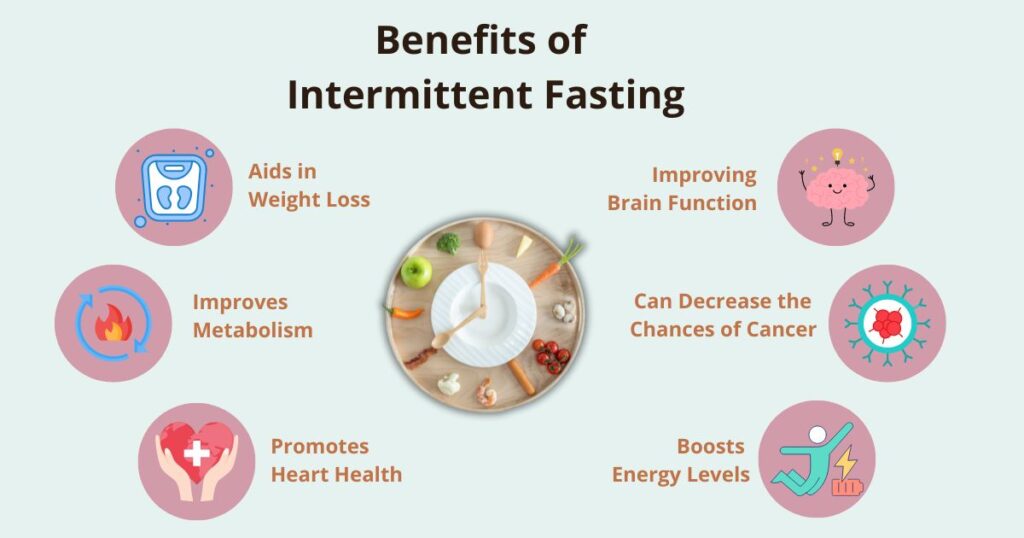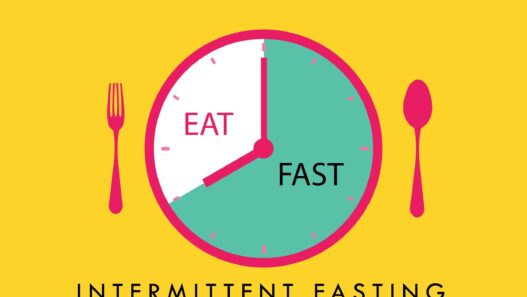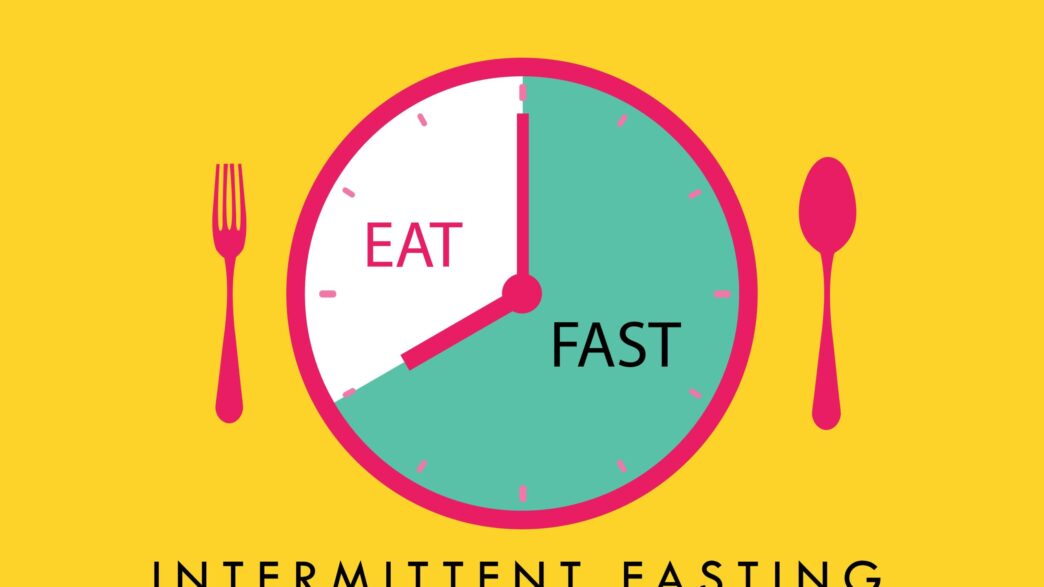Intermittent fasting for weight loss has become one of the most talked health and wellness trends worldwide. Many people has said it had helped them shed lbs, boost their health, and simplify daily eating habits and schedule.
Research has also linked intermittent fasting (IF) to better cognitive function, improved heart health, and better digestive health.
What is Intermittent Fasting (IF)?
Intermittent fasting (IF) is an eating approach that alternates between periods of fasting and eating. It’s currently a popular trend in the health and fitness world.
IF doesn’t focus on what you eat, but rather on when you eat. So, instead of being a traditional diet, it’s better described as a structured eating pattern.

Intermittent Fasting Methods
There are many ways to practice intermittent fasting (IF), but all involve dividing your day or week into periods of eating and fasting.
During fasting times, you avoid all food but can drink calorie-free beverages like water, herbal tea, or black coffee.
Here are the most common IF methods:
- The 16:8 method: It is also known as the Leangains protocol method, this method includes an almost 8 hour eating window time period followed by a 16 hour fast. Some people skip breakfast, while others skip dinner or eat earlier in the day.
- Eat-stop-eat: The eat-stop-eat method is linked to fasting for about 24 hours about one or two times per week. It’s more advanced, so it’s better for those who are already tried fasting and are comfortable with it.
- The 5:2 diet: In this diet method, you eat typically for five days a week and limit intake to 500-600 calories on two nonconsecutive days.
For many, shortening the eating window naturally leads to reduced calorie intake, which can help support weight loss over time.
Intermittent Fasting (IF) And Weight Loss
Weight loss is the most common reason people try intermittent fasting (IF). By limiting the time window for eating, many naturally consume fewer calories, often without even noticing.
IF also influences hormone levels in ways that can support fat loss. It lowers insulin, boosts human growth hormone (HGH), and increases levels of norepinephrine (noradrenaline), a hormone that helps burn fat.
These shifts may temporarily raise your metabolic rate during short-term fasting.
Research suggests intermittent fasting for weight loss can be very effective when practiced safely. A 2020 systematic review found that people with overweight or obesity lost between 0.8% and 13% of their starting body weight. However, most studies were small and short-term.
It’s important to remember that IF works mainly by helping reduce calorie intake. If you overeat during your eating windows, weight loss may not occur.
How Does IF Help With Weight Loss?
Going without food for extended periods can trigger short-term ketosis, a state where the body burns fat for fuel.
Ketosis begins when your body depletes its glucose stores (its preferred energy source) and starts breaking down stored fat for energy. Dr. Hu explains,
“Sixteen hours of not eating is sufficient for some people to start producing ketones or go into ketosis”
Intermittent fasting (IF) is very beneficial for your health, including reduced risk factors for many diseases like cardiovascular disease, obesity, high blood sugar, high blood pressure, and high cholesterol levels.
Research also suggests IF may support a healthier gut microbiome, leading to improved digestion and protection from infections. Some people also report increased energy levels while following an IF routine.
While intermittent fasting (IF) shows promise, current evidence is still limited. Long-term benefits or risks remain unclear. Dr. Hu says, “for instance, it could help reduce your daily calories, especially if you’re a late-night snacker.”

Should You Try IF to help with Your Weight Loss Journey?
According to Dr. Hu, it may help with weight management and reduce mindless snacking. “Low blood sugar levels from not eating for so long could cause problems,” he says. For most people, there’s little downside, if done safely.
Still, talk to your doctor before trying IF, especially if you have diabetes, are on blood pressure medication, or get dizzy when standing quickly. Dr. Hu warns,
“Low blood sugar levels from not eating for so long could cause problems.”
He recommends starting with a gradual approach, such as a 12/12 schedule, 12 hours of eating, 12 hours fasting.
Dr. Hu suggests,
“Follow this for a few days to get used to the schedule, and then extend the time to 14/10. When you feel ready, move to 16/8.”
Don’t expect overnight results. “Generally, people tend to lose about half a pound to one pound per week. Still, slow and steady weight loss is more successful and sustainable over the long term.”
He emphasizes that IF alone isn’t enough. “Any benefit you may gain from fasting won’t last if you aren’t eating healthy foods, controlling portions, and reducing your intake of snacks and processed foods.”
Conclusion
Some studies suggest that intermittent fasting for weight loss is a great method and it can also improve your brain and heart health. If you choose to try it, it’s important to find the method that fits your needs and practice it safely.

















